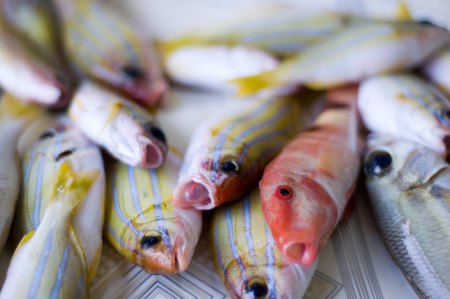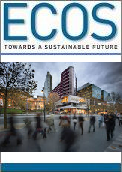
|
Published: 31 October 2011
Link between fair trade crops and reef health
To prevent the collapse of worldwide fisheries and the death of coral reefs, coastal communities must be able to earn alternative incomes from other industries other than fishing, warns an Australian marine scientist.

|
|
Reef fish at a market in the Philippines – local farming industries based on fair trade could reduce over-dependency on fish for small coastal communities. Credit:
Rebecca Weeks/Marine Photobank
|
Dr Simon Foale from the ARC Centre of Excellence for Coral Reef Studies and James Cook University says setting up marine protected areas (MPAs) to curb overfishing will not be enough – communities in developing countries like Papua New Guinea and the Philippines need alternative livelihoods such as farming and manufacturing.
‘However, these sources are often unable to give them a decent income – and one reason for this is unfair international trade arrangements,’ says Dr Foale.
‘Growers of crops such as bananas, coffee beans, vanilla and coconut are often paid very little for their products.
‘So despite abundant capacity to produce agricultural products in these communities, the most lucrative livelihood is often fishing.”
Dr Foale says some of the biggest drivers of poverty in these communities include unfair trade rules and the use of tax havens by transnational corporations to minimise or avoid paying tax on exports.
‘Timber is a major export and is one of the most important foreign income earners in developing nations such as Solomon islands and Papua New Guinea,’ he says.
‘However, transnational companies routinely use transfer pricing, under-reporting or lying about timber species to evade tax.
‘So besides being unable to access sustainable alternative incomes, the communities also have poor health services, low education standards and inadequate transport and communications.
‘This causes a vicious cycle: as long as education and other services are under-resourced, the communities remain ignorant of the financial processes that are robbing them and their governments of alternative sources of revenue and economic development.
‘This in turn forces local communities to rely heavily on unsustainable fishing practices.
‘Simply telling them what to do and sealing off marine areas will not always work. The economic pressures on fishers in many tropical countries drive them to fish illegally, which defeats the point of having MPAs.
‘We need a greater investment in researching and addressing the transnational drivers of poverty. Fair trade, to provide a decent income from alternative livelihoods, is a good place to start.’
Source: ARC Centre of Excellence for Coral Reef Studies



